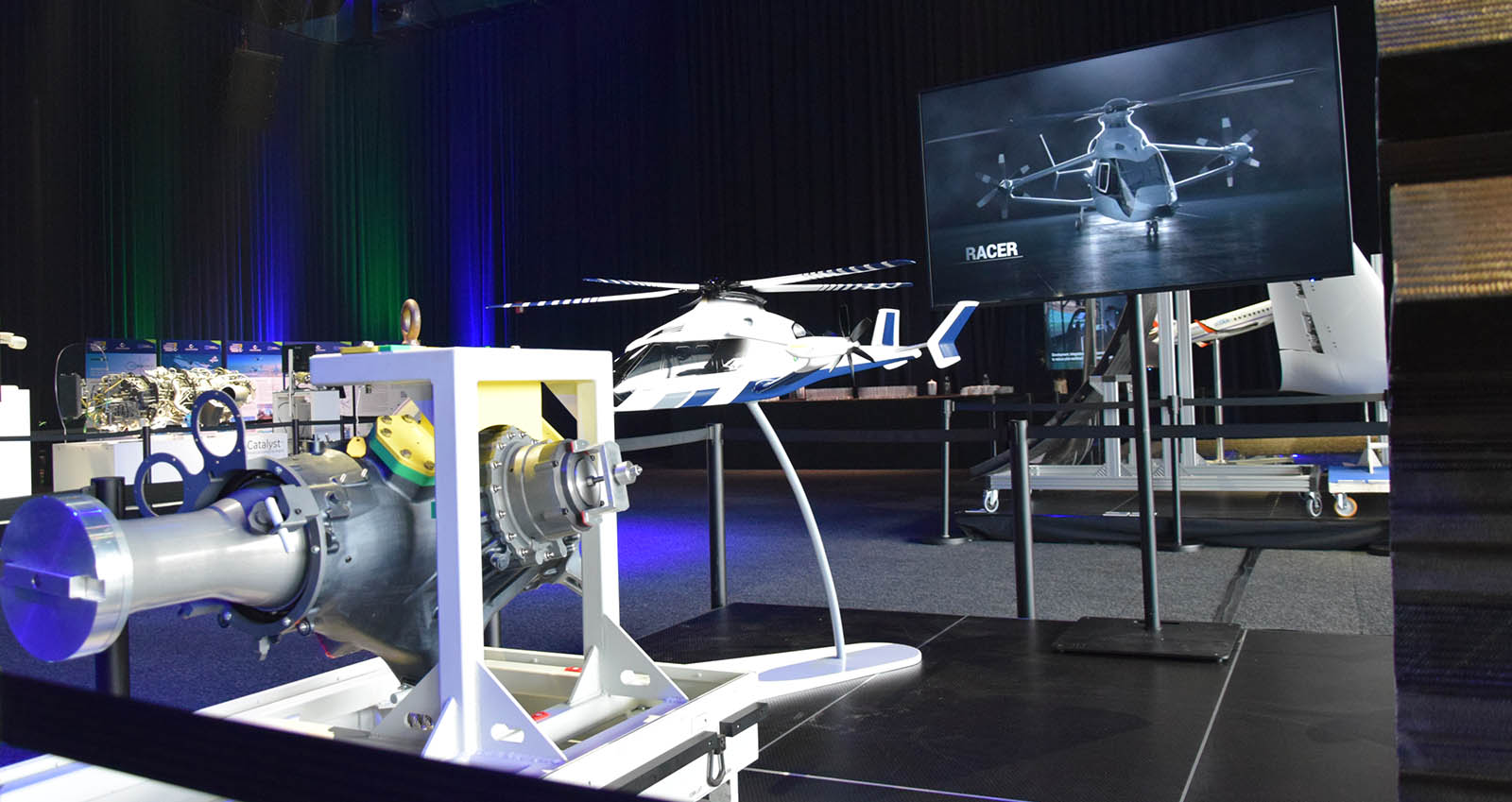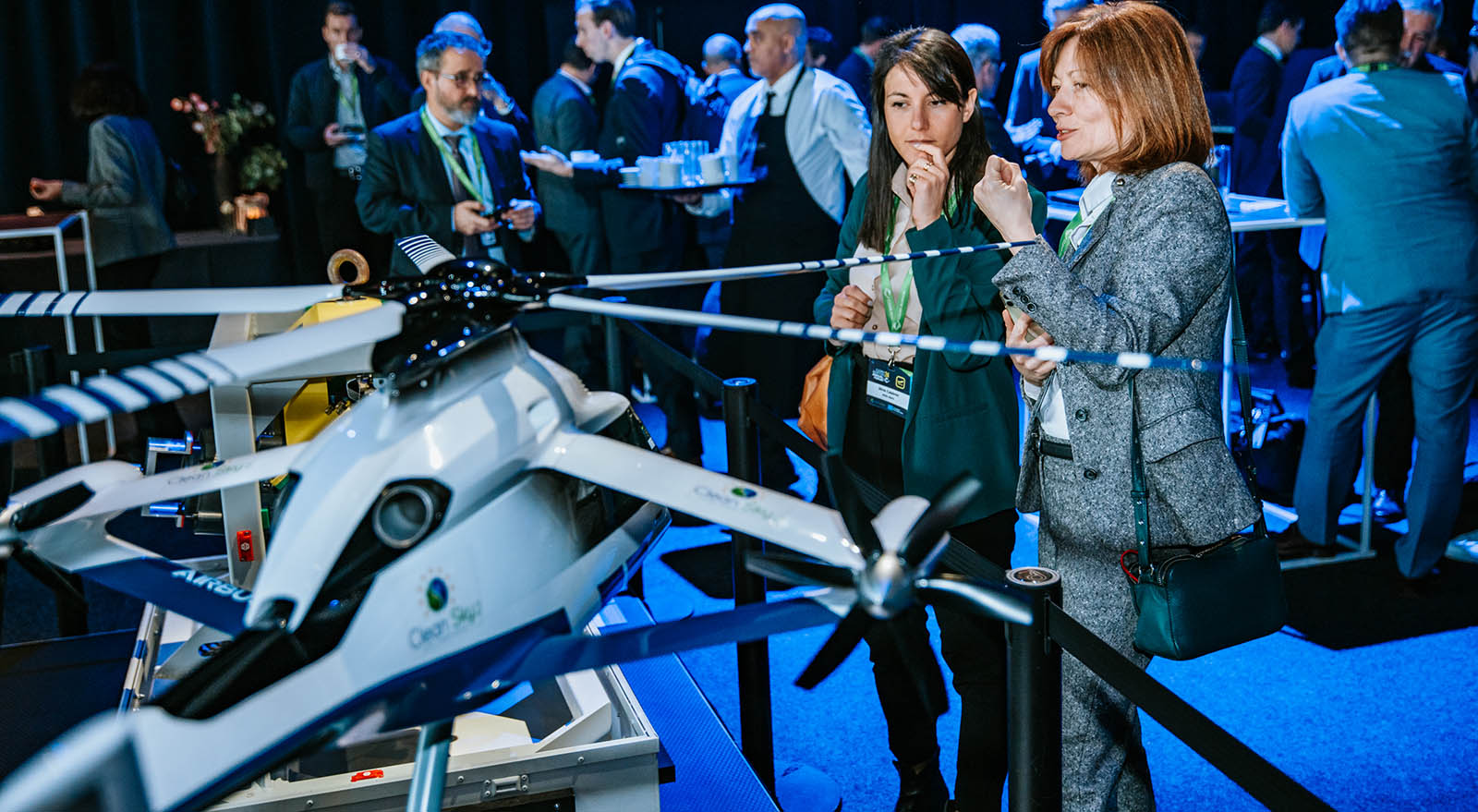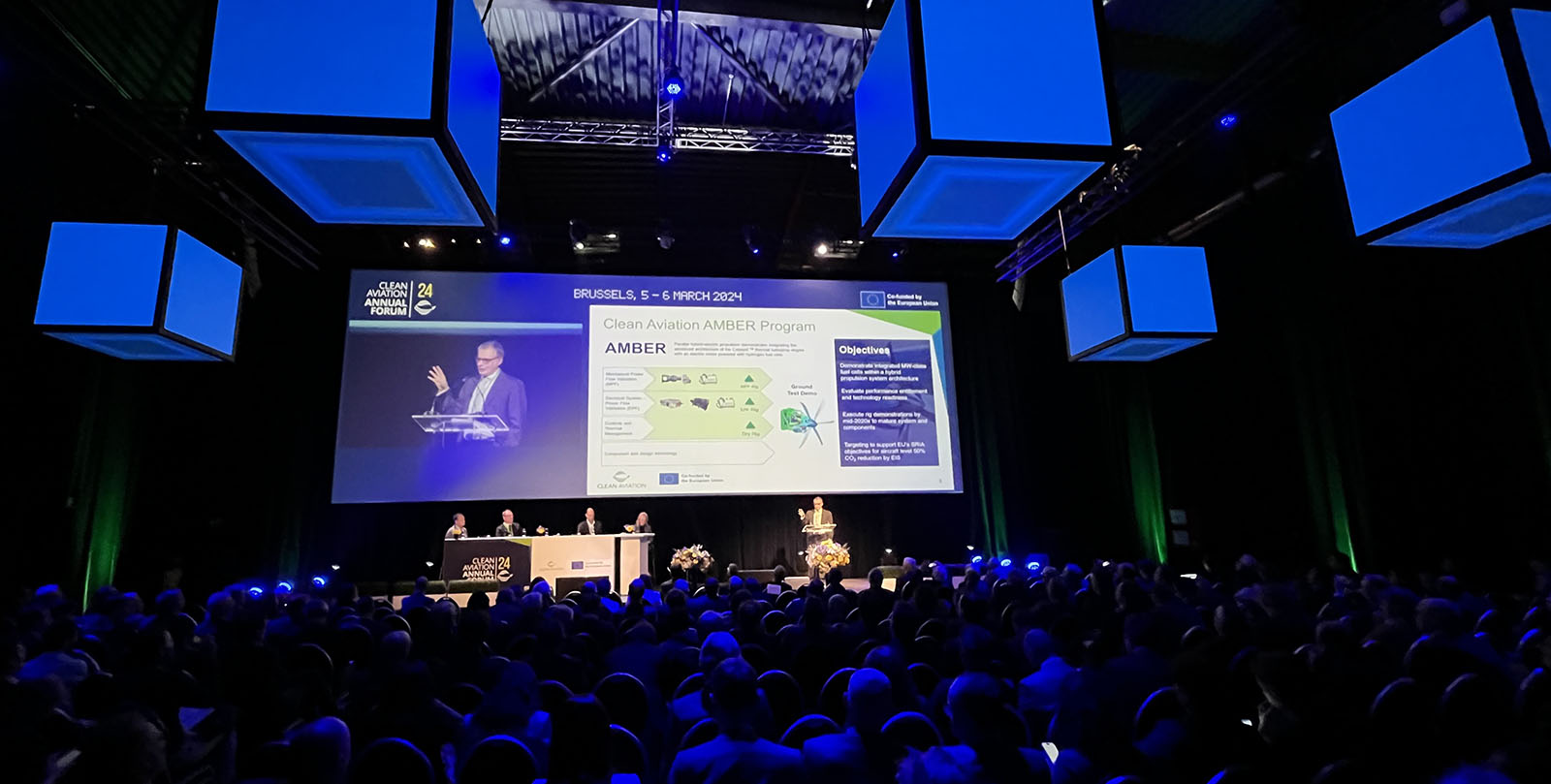Future
The Forum of European Aviation
The annual Clean Aviation event brought together the protagonists of the transformation of the aviation sector, with results and outlooks on the route towards climate neutrality goals.
Mar 2024
The current year is drawing a growing trend for commercial air transport that could exceed pre-pandemic levels, while 2023 has just ended, almost equaling 2019. In such global scenario, the annual forum of Clean Aviation - the European Union's public-private partnership leading research and innovation towards sustainable aviation - brought together the main players of European aviation in Brussels. Large industries, universities and research centres, SMEs, authorities, and representatives from the European Commission and the European Parliament, and Regions across Europe were among the many guests of the event.
The event took place on 5 and 6 March in the northern part of the European capital, in the panoramic setting of the Docks Dome Eventhall, hosting numerous keynote speeches and panel discussions, along with an extensive exhibition of 16 hardwares and demonstrators resembling some of the technological innovations developed during Clean Sky 2 programme (the programme which preceded Clean Aviation and that run 2017 and 2024).
Among the scale models and demonstrators on display - which represented in particular the results of Clean Sky2, whose primary objective was to reduce CO2 and NOx emissions by 30% - the attendees could have a close look at the new high-speed helicopter RACER by Airbus Helicopters (soon to be in maiden flight) together with the lateral gearbox by Avio Aero, the Multifunctional Fuselage Demonstrator (a part of the fuselage about 8 meters long made of composite material that significantly reduces weight while promoting efficiency).
And also, a model of the Open Fan (architecture connected to the current OFELIA project and therefore to the RISE program, aiming for a 20% reduction in CO2 emissions) and the full-scale model of the Catalyst engine (which embeds technological innovations developed in the Maestro project of Clean Sky2) stood out on display.
As put by Axel Krein, Executive Director of Clean Aviation, in his opening speech, disruptive technologies require courage and determination to progress on this path of innovation. Krein also stressed that just 15 months have passed since the launch of the new, ambitious Clean Aviation projects which are grouped into three main segments: ultra-efficient short medium range aircraft, regional hybrid-electric propulsion aircraft, and enabling technologies for hydrogen-powered aircraft. Among these, Avio Aero coordinates two projects - AMBER and HYDEA - and participates in three others - OFELIA, HERA, and ACAP.
With a budget of around €4.1 billion of total investments, Clean Aviation has the ambitious goal of reducing greenhouse gas emissions generated by civil aviation by at least 30% by 2035, compared to 2020 state-of-the-art aircraft. "In order to replace about 75% of the commercial fleet operating in Europe today by 2050, that's thousands of airplanes," Krein said, "the first step is to develop and mature the technologies, and then demonstrate their effectiveness: a challenge that requires adequate resources (such as those of the European Innovation Bank) and collaboration within networks that extend from the European level to the regional level in each country".
Demand for new aircraft is expected to follow that growing trend, suffice it to say that Airbus (the world leader among aircraft manufacturers, member of Clean Aviation and present at the forum) and Boeing estimate that the global airline fleet will grow to about 50,000 aircraft in the next twenty years. At the European level, Krein wished that "public and private decision-makers further extend their support to enable a bright European aviation future that is environmentally friendly, competitive on the world market and industrially robust”.
On the institutional side, Maroš Šefčovič - Executive Vice-President of the European Commission for the Green Deal, Interinstitutional Relations and Social Security - speaking on the first day of the forum, clearly reiterated how aviation represents a highly strategic sector for the European Union, with a highly appreciated generation of value.
In fact, the sector totals about 3.6% of the entire workforce (more than 13 million jobs) and contributes 4.5% to the gross domestic product in Europe. "We want to fly on European and more sustainable aircraft," Šefčovič began. "The importance of aviation lies not only in its economic potential, but in its ability to bring people together, literally. To develop and scale new technologies able to power low- and zero-carbon flights, it is essential to have an open dialogue and the active participation of the entire value chain".
If Clean Aviation's ambition is to mature pioneering technologies, such as hybrid-electric or hydrogen to fly aircraft, the European Union needs to aim at leading the transformation of the global aviation industry. This also resonates with the words addressed during the Forum by the Vice-President of the European Parliament, Jan-Christoph Oetjen, for whom the integration and expansion of funding opportunities, for aircraft technologies as well as for airport infrastructure, is a concrete commitment.
The transformation of an industry like aviation, which puts product safety and quality above all, requires regulators and policy to go hand in hand with innovation. This is what Joanna Drake, Director General for Research and Innovation of the European Commission said in her speech from the stage: "We must connect the programmes at European level with those at the national one, while consider that together with private and commercial aviation there are also programmes for defense, environmental, and humanitarian protection”.
Collaborative networking between industry, research, institutions, and regulators was the leitmotif across the keynote speeches as well as the panels of the Annual Forum. Also on the second day, when Luca Bedon, Head of Research & Technology at Avio Aero, spoke at the panel dedicated to hydrogen and hybrid-electric technologies for regional and medium-haul aircraft, together with counterparts from Leonardo and Airbus. "Synergies and partnerships within the aviation value chain (from propulsion technologies up to airports) are crucial, as well as a certain simplicity of approach, to be able to achieve such challenging sustainability goals," said Bedon.







